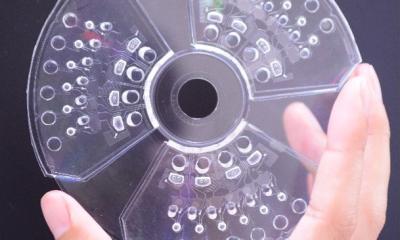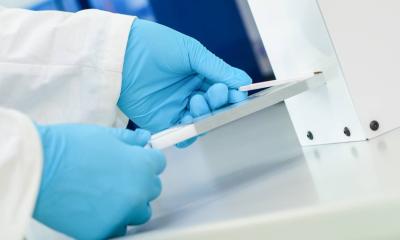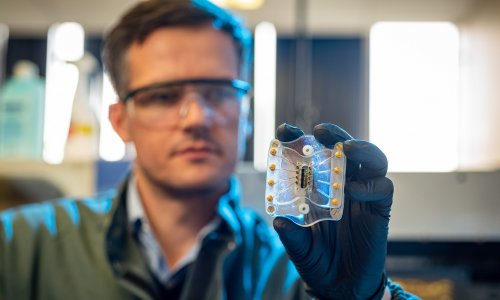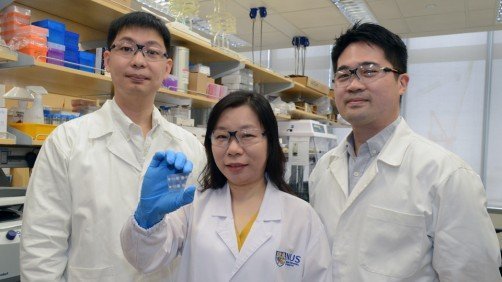
Credit: NUS BIGHEART
News • Inexpensive invention
Test kit enables quick and accurate screening of diseases
Test results are denoted by a colour change and could be further analysed by a smartphone app, making it attractive as a point-of-care diagnostic device.
A multidisciplinary team of researchers at the National University of Singapore (NUS) has developed a portable, easy-to-use device for quick and accurate screening of diseases. This versatile technology platform called enVision (enzyme-assisted nanocomplexes for visual identification of nucleic acids) can be designed to detect a wide range of diseases – from emerging infectious diseases (e.g. Zika and Ebola) and high-prevalence infections (e.g. hepatitis, dengue, and malaria) to various types of cancers and genetic diseases.
enVision takes between 30 minutes to one hour to detect the presence of diseases, which is two to four times faster than existing infection diagnostics methods. In addition, each test kit costs under S$1 – 100 times lower than the current cost of conducting similar tests. “The enVision platform is extremely sensitive, accurate, fast, and low-cost. It works at room temperature and does not require heaters or special pumps, making it very portable. With this invention, tests can be done at the point-of-care, for instance in community clinics or hospital wards, so that disease monitoring or treatment can be administered in a timely manner to achieve better health outcomes,” said team leader Assistant Professor Shao Huilin from the Biomedical Institute for Global Health Research and Technology (BIGHEART) and Department of Biomedical Engineering at NUS. Asst Prof Shao is also an investigator with the Institute of Molecular and Cell Biology (IMCB) under the Agency for Science, Technology and Research (A*STAR).
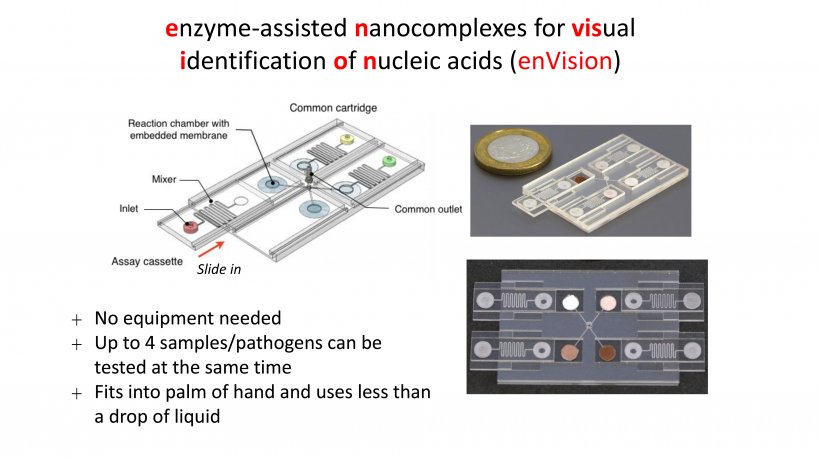
Credit: NUS BIGHEART
Superior sensitivity and specificity
The research team used the human papillomavirus (HPV), the key cause of cervical cancer, as a clinical model to validate the performance of enVision. In comparison to clinical gold standard, this novel technology has demonstrated superior sensitivity and specificity. “enVision is not only able to accurately detect different subtypes of the same disease, it is also able to spot differences within a specific subtype of a given disease to identify previously undetectable infections," Asst Prof Shao added.
Bringing the lab to the patient
In addition, test results are easily visible – the assay turns from colourless to brown if a disease is present - and could also be further analysed using a smartphone for quantitative assessment of the amount of pathogen present. This makes enVision an ideal solution for personal healthcare and telemedicine.
“Conventional technologies - such as tests that rely on polymerase chain reaction to amplify and detect specific DNA molecules - require bulky and expensive equipment, as well as trained personnel to operate these machines. With enVision, we are essentially bringing the clinical laboratory to the patient. Minimal training is needed to administer the ,test and interpret the results, so more patients can have access to effective, lab-quality diagnostics that will substantially improve the quality of care and treatment,” said Dr Nicholas Ho, a researcher from NUS BIGHEART and A*STAR’s IMCB, and co-first author of the study.
Source: National University of Singapore
26.09.2018



